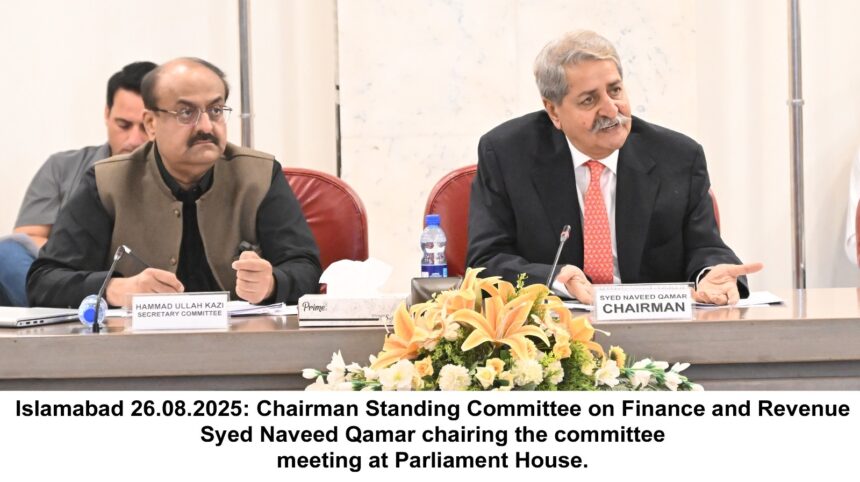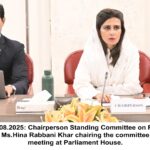The Standing Committee on Finance and Revenue convened at the Parliament House in Islamabad to review key issues related to economic policy, taxation, and legislative proposals. Chaired by Syed Naveed Qamar, the committee discussed the Corporate Social Responsibility Bill, monetary policy developments, and taxation matters affecting formerly federally and provincially administered tribal areas.
During its session, the committee examined the Corporate Social Responsibility Bill, 2025, introduced by Dr. Nafisa Shah. The Finance Secretary and Chairman of the Securities and Exchange Commission of Pakistan (SECP) were asked to provide detailed proposals. After thorough discussion, the committee postponed further consideration of the bill to its next meeting.
A significant portion of the meeting was dedicated to a briefing on monetary policy and the latest inflation trends. Representatives from the State Bank of Pakistan (SBP) highlighted that a cautious monetary approach has promoted macroeconomic stability. Inflation rates have sharply declined and are expected to remain within the target range of 5 to 7 percent. SBP noted that while economic growth is recovering, it is doing so sustainably without exerting unnecessary strain on the external account or increasing inflationary pressure. Improvements in the external account, such as a reduced current account deficit and rising foreign exchange reserves, were also reported, though a need for further strengthening of reserves was emphasized.
The committee also reviewed the taxation regime introduced in the Budget 2025-26 for the formerly federally and provincially administered tribal areas, now merged with Khyber Pakhtunkhwa. Members discussed challenges related to sales tax rates in these newly integrated districts and considered alternative methods for consumption taxation. Chairperson Syed Naveed Qamar called for data-driven decisions regarding sales tax policies and highlighted concerns about the lack of evidence for the effectiveness of tax incentives in promoting employment and development. He stressed the importance of prioritizing job creation and industrial development over mere profitability.
Committee members voiced further concerns about policy shortcomings, including the unfulfilled promises of tax exemptions in underdeveloped regions and the risk of misuse of tax benefits. They debated the impact of sales tax increases on local economies, especially in poorer districts, and underscored the need for robust mechanisms to foster industry in disadvantaged areas. The committee decided to postpone further discussions on these tax issues for future meetings.
The absence of the Secretary from the Ministry of Industries and Production drew criticism, as his presence was considered crucial to discussions on the new Electric Vehicle Policy. Due to his absence, the committee deferred this agenda item to its next session and issued instructions for his mandatory attendance.
The committee unanimously approved the minutes from its previous meeting. Attendees included several members of the National Assembly, key officials from the Ministry of Finance, SECP, Federal Board of Revenue (FBR), and other relevant divisions.











